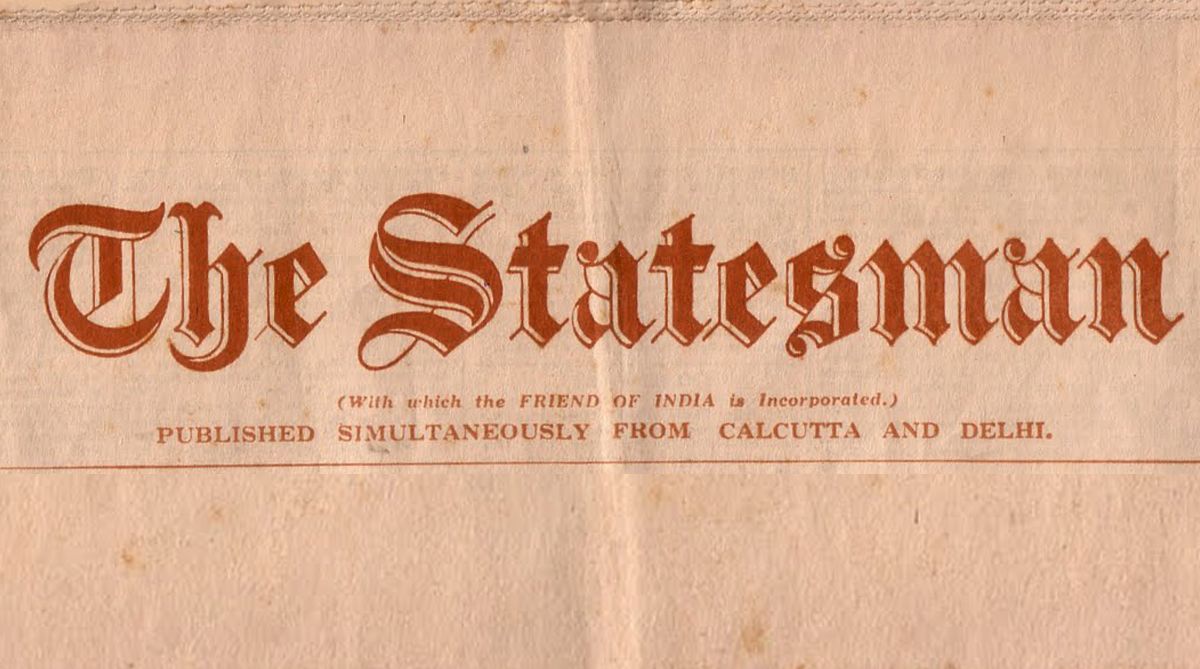A New Day, A New Dawn
There is a surprise for the readers. A special Poila Boishakh gift from none other than West Bengal chief minister Mamata Banerjee. Who has written a piece for this special edition.
On this day a century ago, these were some of the news items The Statesman readers got to read about India and the world.

OCCASIONAL NOTE
In the nature of things it was hardly to be expected that a leader who had extricated himself and his army from the bear-like embrace of a Hindenburg would fall an easy prey to a young lion of the Daily Telegraph; and so one is by no means disappointed to find Marshal Foch emerging from an interview with Lord Burnham’s representative without giving public utterance to one single word which would reveal his views and intentions either to his friends or his enemies. “You must not think we shall get to the Rhine immediately,” he says – as though anyone had suggested that we were going to the Rhine immediately, or as if he did not know it to be possible to annihilate the Hun army and even invade Germany long before the river is in sight.
The Marshal did go so far as to suggest that the most difficult portion of our task was behind us when he said, “We have passed the crest of the hill and are now going downhill”; but although he did not commit himself as to the pace to be set for this process, he made the significant statement that the British and French armies were as strong as they ever were, without reference to the mighty reinforcements which America is forwarding to the battle line every day. If our strength is thus very much greater than it was, and the task before us is growing easier, there is possibly more than the traditional virtue associated with an “if” in his cheerful speculation, “if we gather impetus as we go, like a rolling ball, so much the better.”
Advertisement
QUININE PRODUCTION IN SOUTH INDIA
The Cinchona Administration Report, just issued, states that output of quinine rose from 52,513 to 55,014 pounds in the official year. This is a source of satisfaction, as the increased production was accomplished without any addition to the manufacturing plants. Post Office pice packets are becoming more popular. The present retail price of quinine in South India makes a pice packet worth seven times what it is sold for, and the possible risk of dealers trading in pice packets of quinine is being looked into.
Gratifying reports were received regarding the efficiency of Cinchona febrifuge, which has been proved to be only less valuable than quinine. Apprehension exists regarding the rapid exhaustion of supply. The plantations only supply 30 per cent of the factory requirements. In the 20 years the Government have purchased nearly 29 lakhs of rupees worth of Cinchona bark from the South Indian planters. The Government note with satisfaction the creditable manner in which the work of the department was carried out during the year.
CHOLERA ON AN EMIGRANT SHIP
The S.S. Fazulka, which sailed from Madras carrying coolies to the Straits Settlements, has returned on Saturday, cholera having broken out on board. There were in the vessel, besides about 800 coolies, twenty deck passengers and few first and second class passengers. The vessel weighed anchor at Madras with a clean bill of health, but a couple of days later cholera made its appearance among the coolies. Quite a number were attacked and the captain immediately made for and arrived at Madras on Saturday.
Dr. K.R. Raghavendra Rao, Health Officer, of the Madras Corporation, immediately boarded the vessel. He found some cholera cases on board, all of which he promptly removed to the isolation hospital. The other coolies were by special train sent to Avadi, where there is a segregation camp attached to the emigration depot. One of the coolies admitted into the isolation hospital died today. Mr. J.C. Molony, President of the Corporation, has called for a report from Dr. Raghavendra Rao.
KIDDERPORE BRIDGE
The final report of the committee of experts appointed by Government to ascertain for what further period of time the Kidderpore bridge could be usefully utilised has been received and considered. The commi t tee have reported that the structure of the bridge has deteriorated to such an extent as to render the bridge unsafe for vehicular traffic of any description.
The Governor in Council has, in the interests of the public, accepted this expert advice and has accordingly issued orders that all vehicular traffic over the bridge will be stopped from mid-day Friday, September 27th, 1918. Pedestrian traffic over the bridge will be permitted subject to such restrictions as the Governor in Council may deem necessary.
Advertisement